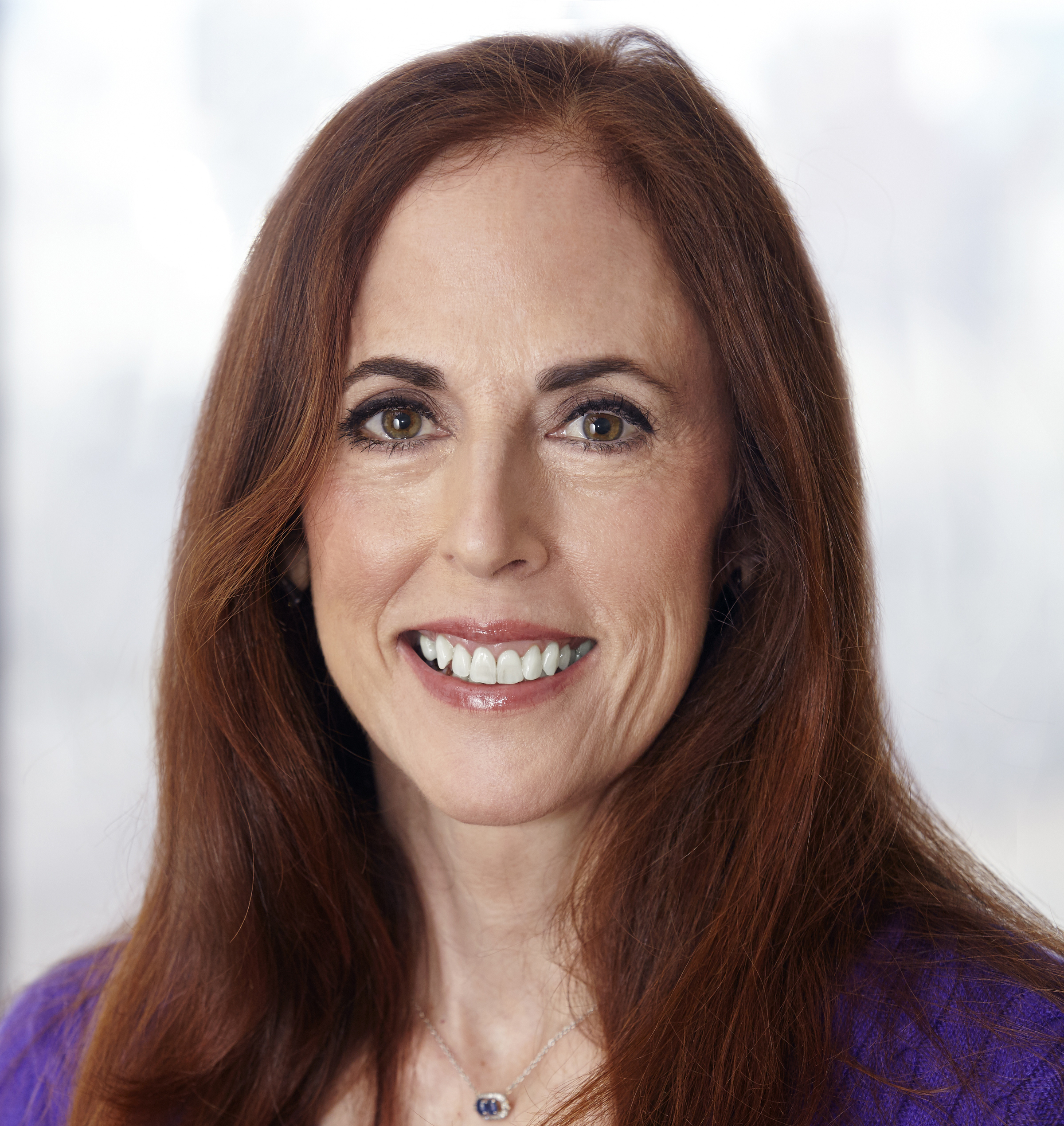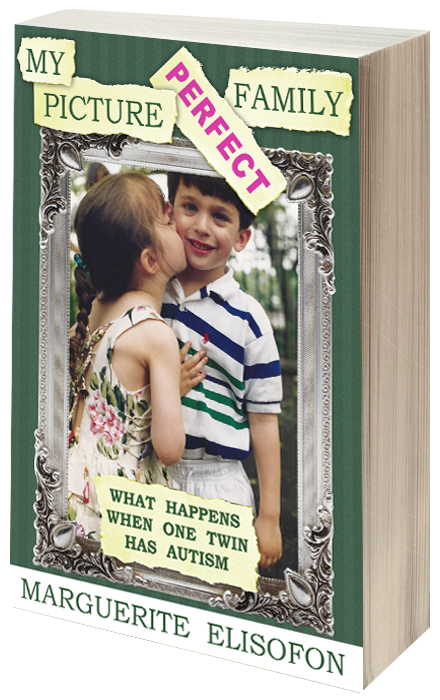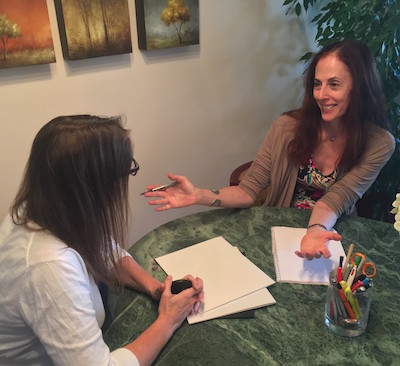 After standing on a chaotic line in monsoon-like rain for 45 minutes, I was relieved to clear security and enter the warm, dry interior of the United Nations for the March 31st World Autism Awareness Day. The last time I attended World Autism Awareness Day two years ago, the theme was “A Call to Action – Employment for Persons with Autism.” (See “World Autism Day,” 4/3/15). Back then, I felt excited and hopeful, thinking maybe I’d gain valuable information and leads to help my daughter Samantha—a 2014 cum laude Pace University graduate—finally find a job.
After standing on a chaotic line in monsoon-like rain for 45 minutes, I was relieved to clear security and enter the warm, dry interior of the United Nations for the March 31st World Autism Awareness Day. The last time I attended World Autism Awareness Day two years ago, the theme was “A Call to Action – Employment for Persons with Autism.” (See “World Autism Day,” 4/3/15). Back then, I felt excited and hopeful, thinking maybe I’d gain valuable information and leads to help my daughter Samantha—a 2014 cum laude Pace University graduate—finally find a job.
Even though my daughter is still unemployed, I couldn’t help but feel energized and hopeful again. Entering the U.N. with hordes of families and autism professionals willing to endure the cold, damp wrath of Mother Nature filled me with warmth and enthusiasm. And I really loved the 2017 theme: “Toward Autonomy and Self-Determination.” Nothing could be more relevant to me and Samantha (now 26) than helping her reaching her goal of moving out of our apartment and living independently. But Manhattan real estate is expensive, and even if we could afford to help our daughter rent or buy an apartment tomorrow, she isn’t quite ready for independent living yet. Samantha still needs a life coach and vocational training, which she has FINALLY been approved for through our self-directed program (a government subsidy helping parents hire and pay for necessary supports). However, one ugly question kept popping up during interviews with well-meaning but ineffective government agents: Will we seek guardianship for our daughter?
The answer for me has always been no. But after attending World Autism Awareness Day, I am more emphatic than ever. The idea of depriving my daughter of the right  to live on her own always seemed impossibly sad, given how ferociously determined she has been since birth to be independent. Yet I know in my heart that no matter how much coaching we provide, she will always need some advice and help navigating the neurotypical world after my husband and I are gone. What a relief it was for me to learn that there is a much better option: supported decision making. Supported decision making is distinct from substitute decision making (guardianship) and enables the person with a disability to remain captain of his or her destiny, while receiving advice and support in decision making. Many knowledgeable autism speakers and advocates emphatically endorsed “promoting, protecting and ensuring” respect for those on the spectrum in this manner. A few called for the repeal and reform of guardianship laws which they said violate human rights. One speaker went so far as to compare substitute decision making with slavery or genital mutilation.
to live on her own always seemed impossibly sad, given how ferociously determined she has been since birth to be independent. Yet I know in my heart that no matter how much coaching we provide, she will always need some advice and help navigating the neurotypical world after my husband and I are gone. What a relief it was for me to learn that there is a much better option: supported decision making. Supported decision making is distinct from substitute decision making (guardianship) and enables the person with a disability to remain captain of his or her destiny, while receiving advice and support in decision making. Many knowledgeable autism speakers and advocates emphatically endorsed “promoting, protecting and ensuring” respect for those on the spectrum in this manner. A few called for the repeal and reform of guardianship laws which they said violate human rights. One speaker went so far as to compare substitute decision making with slavery or genital mutilation.
 Keynote speaker Professor Simon Baron-Cohen, one of the world’s leading autism researchers and advocates told the audience “there are 70 million people in the world with autism.” He argued that autism is “not a disease in a classic way” but an example of neurodiversity: people with different wiring that is not better or worse. He said that autonomy and self-determination can’t be separated from human rights; and 50% of those with autism have good language and legal capacity, even if they need some support. Professor Baron-Cohen emphasized following the 1948 Universal Charter of Human Charter of Human Rights and asserting that these “thirty fundamental human rights” should be compulsory reading in schools. Then he asked the audience to observe a moment of silence in remembrance of all the Holocaust autism victims on the spectrum, who have been largely ignored or forgotten.
Keynote speaker Professor Simon Baron-Cohen, one of the world’s leading autism researchers and advocates told the audience “there are 70 million people in the world with autism.” He argued that autism is “not a disease in a classic way” but an example of neurodiversity: people with different wiring that is not better or worse. He said that autonomy and self-determination can’t be separated from human rights; and 50% of those with autism have good language and legal capacity, even if they need some support. Professor Baron-Cohen emphasized following the 1948 Universal Charter of Human Charter of Human Rights and asserting that these “thirty fundamental human rights” should be compulsory reading in schools. Then he asked the audience to observe a moment of silence in remembrance of all the Holocaust autism victims on the spectrum, who have been largely ignored or forgotten.
On the issues of dignity, education and employment, Professor Baron-Cohen offered some alarming statistics. Among those on the spectrum, 50% report sexual or physical abuse; 25% have had money stolen; and 33% have been manipulated by “friends” because of their vulnerability to taking what people say at face value. Educational findings were equally disheartening: 1 in 5 kids with autism are excluded from school, and 80% of those who attend school are bullied. Bullying in childhood increases the high school drop-out rate; 80% of teenagers on the spectrum do not attend secondary school, and 1 in 3 adults with autism experience severe mental health issues.
In discussing employment, Professor Baron-Cohen said that “only 15% of adults with autism are employed,” meaning my daughter has a lot of unhappy company. According to the professor, unemployment leads to feeling “excluded, unvalued and low self-esteem.” About 50% of unemployed adults on the spectrum report loneliness, and 1 in 4 say they have no friends. Thankfully my unemployed daughter performs in two theater groups, has a boyfriend and an active social life with her friends.
Although these statistics were depressing, there was also good news for autism mom advocates like me. During the introductory remarks, the audience was told that attitudes about people with autism are starting to change. Previously, lack of understanding led to misinformation and discrimination, but now there is greater understanding about how autism affects people in dramatically different ways. Our society must provide support services so that individuals on the spectrum can lead independent lives and enjoy the same human rights as their neurotypical peers. We must insure that autism does not define people, or stop them from reaching their full potential. Hear, hear!
In other good news, I heard Janet Mulvey, Director of Pace University’s autism support program (OASIS) talk about the improved vocational preparation since my daughter graduated in 2014. Now Pace offers students on the spectrum a civic engagement class, workshops on employment readiness, paid internships, and assistance developing resumes and cover letters. Proudly, she announced that 50% of their recent graduates with autism have full-time employment. (If only Samantha could go back….)
I was also happy to see clips from the documentary, Swim Team, in which a father reports being told his son with autism would never speak. But, (like my daughter and I’m sure many others), he defied the gloom-and-doomers, not only speaking but winning a swim meet and high fiving with teammates. But perhaps the most joyful moment of the conference occurred toward the end, when a young woman on the spectrum, Spencer Harte, sang an opera song and received a standing ovation.
Next year I’m hoping that clips from Keep the Change—a love story about young adults on the spectrum seeking love and connection—will be shown at the United Nations. This narrative film is the first of its type to feature actors with autism playing characters on the spectrum, with my daughter Samantha playing the female lead. Keep the Change will premiere in the 2017 Tribeca Film festival and is eligible for awards. Surprisingly, all four screenings sold out the first day, and a fifth show was added “because of popular demand.” That one sold out too (!!) With so much unexpected interest in autism (and perhaps dawning respect?) am I crazy to imagine that in 2018 my daughter might be the lucky one singing at the U.N. to a standing ovation? Better yet, maybe Samantha will be an autism ambassador for her theater group, E.P.I.C. Players, a unique ensemble of talented artists with developmental disabilities. She can share her story of triumph at Tribeca and what it means for talented actors on the spectrum to share their talents with the world on stage and screen. Stay tuned.





 Marguerite Elisofon is a New York City writer and the author of My Picture Perfect Family, a memoir about how her family navigated life with a child on the autistic spectrum before the internet and support groups existed. She also blogs about parenting young adults and disability related issues in The Never Empty Nest. Her writing has been featured in a variety of publications, including Time and NY Metro Parents magazine, and her family’s story has been featured by the NY Post, Fox News, The Daily Mail, and on Jenny McCarthy’s Dirty Sexy Funny radio show. A Vassar graduate, Marguerite was born and raised in New York City, where she still lives with her husband, Howard, in their mostly-empty nest. She is available to speak about a wide variety of issues relating to twins, parenting, and autism.
Marguerite Elisofon is a New York City writer and the author of My Picture Perfect Family, a memoir about how her family navigated life with a child on the autistic spectrum before the internet and support groups existed. She also blogs about parenting young adults and disability related issues in The Never Empty Nest. Her writing has been featured in a variety of publications, including Time and NY Metro Parents magazine, and her family’s story has been featured by the NY Post, Fox News, The Daily Mail, and on Jenny McCarthy’s Dirty Sexy Funny radio show. A Vassar graduate, Marguerite was born and raised in New York City, where she still lives with her husband, Howard, in their mostly-empty nest. She is available to speak about a wide variety of issues relating to twins, parenting, and autism. 
Marguerite-I too was at the U.N. that rainy day..I can’t believe we didn’t bump into each other as we did at the AHA Conference (BTW it’s always good to see you!). I heard what you heard and my feelings are different. Due to other medical conditions besides autism, my son realizes that he cannot make big decisions alone. Prof Baron-Cohen said, everyone has capacity and I’m not sure I agree. My husband and I are our son’s guardian and we manage our court appointment in the same vein as supported decision making and do not abuse nor substitute our ideas for his self-advocacy. I found the entire push back against guardianship as ‘civil rights death’ very off putting and myopic. As the Surrogate who presided over our hearing said to our son, ‘you’re parents will help you make your decisions’. And don’t we all ask our closest confidantes to assist? Who am I to go against the experts? Just another mother of twins (girl NT/boy on the spectrum)
Nobody knows your child better than you do. We all make the best decisions we can for the children we love and know better than anyone else. Perhaps I would feel as you do if my situation with Samantha was different. I have resisted guardianship because my daughter made it clear from a very young age that she wanted to be independent. I don’t think she’s capable of managing her own affairs independently, but I didn’t want to fight with her over it. The idea that there’s another in-between option of supported decision making is a tremendous relief for me, and something that I think Samantha would embrace, since it’s pretty much what we are already doing. But I would never presume to judge other families for making another decision, so I can see how you might not appreciate the judgment of those who don’t know your child or individual circumstances. And yes, it’s surprising we never met at the U.N. I was seated in the 5th row toward the center.